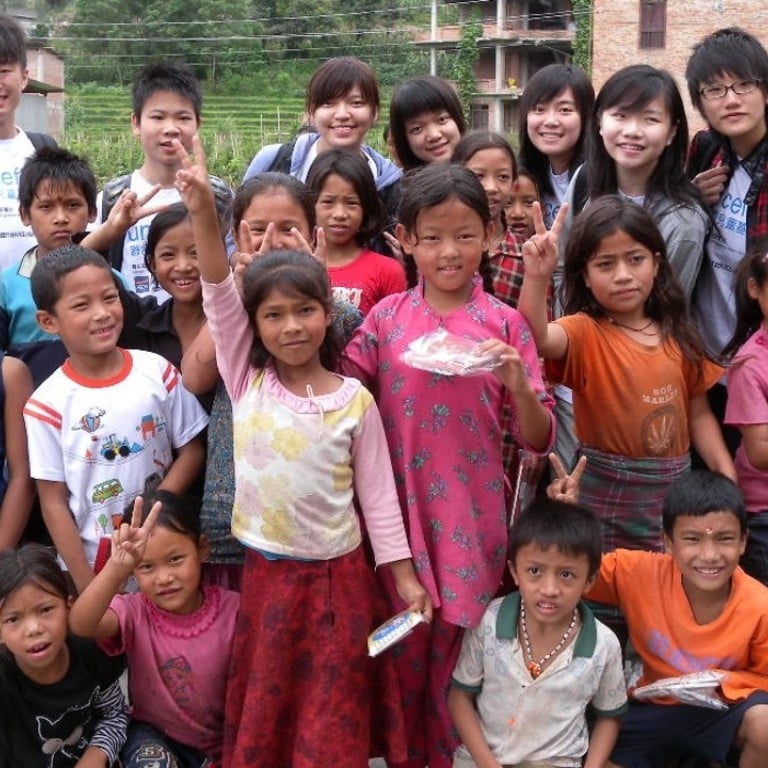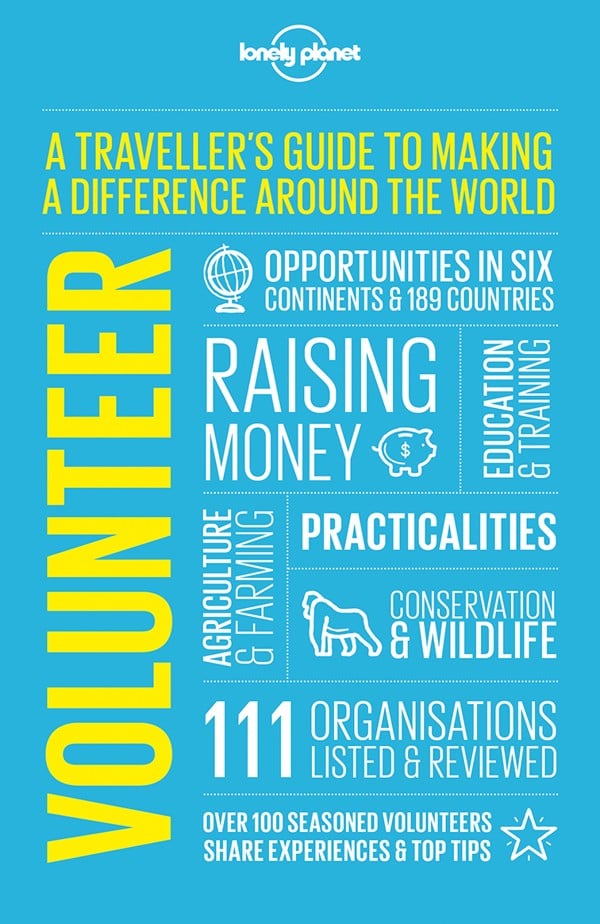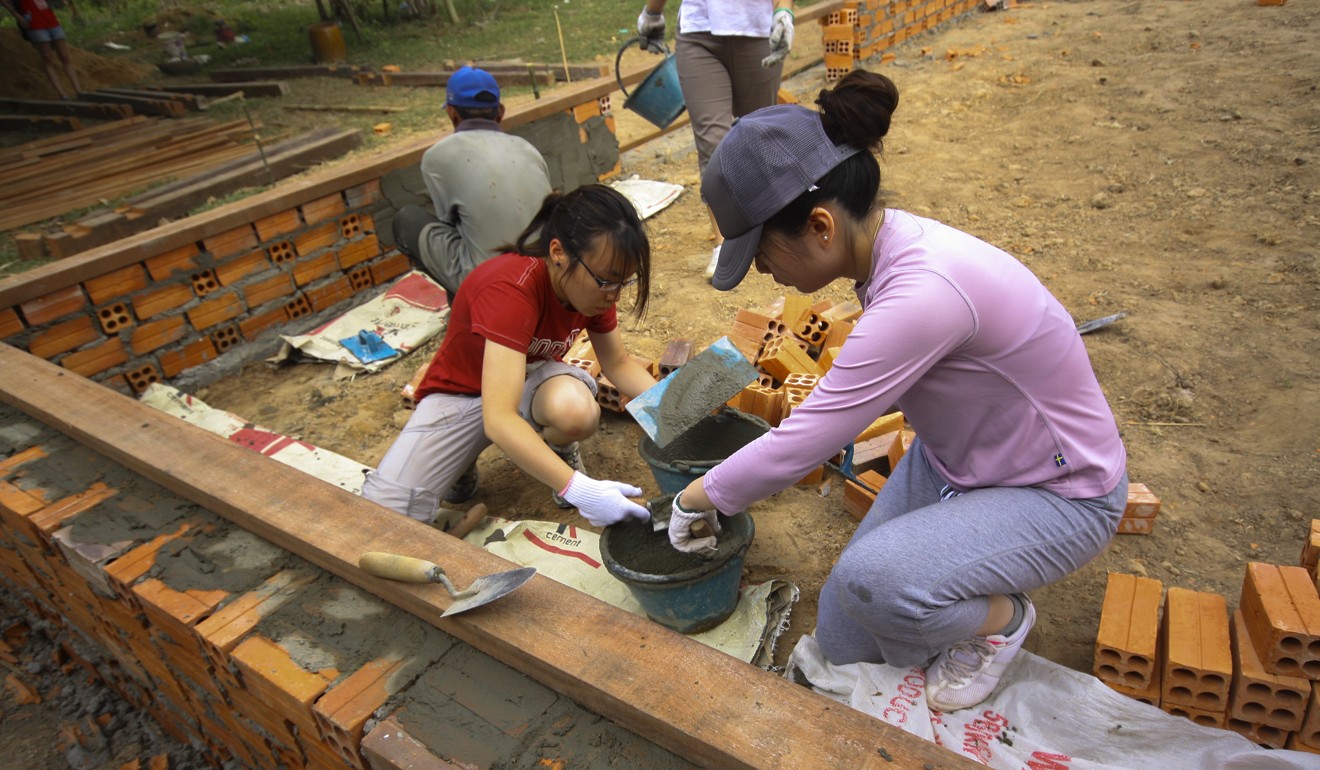
Review | Book review: Lonely Planet’s new guide to volunteering – for people who see travel as more than a selfie opportunity
Fourth edition of Volunteer: A Traveller’s Guide to Making a Difference Around the World tells would-be do-gooders the questions to ask before they turn altruistic adventurer, and is packed with advice - some of it rather obvious
Volunteer: A Traveller’s Guide to Making a Difference Around the World
Lonely Planet
3.5 stars

Lonely Planet travel guides were essential packing when this reviewer left the UK to explore Asia in pre-internet 1990 (and then never really left). Unfortunately, the books often proved out of date. That shouldn’t be the case with the new edition of the publisher’s Volunteer: A Traveller’s Guide to Making a Difference Around the World, a book aimed at readers “looking for a more meaningful travel experience” than taking selfies in front of things for their Instagram.
The guide, published this month, replaces the third printing that was almost four years old. (The original came along 10 years ago, in June 2007.) It’s brimming with know-how and inspirational first-hand accounts for the altruistic adventurer planning a short or long-term volunteer stint, whether they be a fresh-faced gap-year student or a guilt-ridden ex-banker, a trail-hardened loner, a loved-up couple or even an intrepid family with rug rats in tow.

From Cambodia and Colombia to Benin and beyond, Volunteer covers everything from environmental, wildlife-conservation and sustainable agriculture initiatives to much-needed construction, emergency relief, archaeological and education projects. Real-world opportunities run the gamut from tagging sea turtles in Thailand and teaching previously nomadic children in Tibet to organic farming in Togo.
“Do you want to give back to the communities you visit, make a genuine connection with locals, meet like-minded travellers and build your skills?” the guide asks. “International volunteering opens up all these opportunities and this book has all the advice you need to get there.”
How a group of Hong Kong students built four schools in rural Cambodia
That said, Volunteer does not pretend that all in the world of earnest do-gooders is joy and warm-glow light, and instructs readers also to ask tough questions before making the jump: will the host community or country genuinely benefit from my volunteering? Is it better to volunteer or to just donate money? Will volunteering take a job away from a local?
While Lonely Planet’s original 2007 Volunteer guide boldly trumpeted that 190 volunteer organisations were reviewed within its 192 pages, by the second edition (released August 2010; 272 pages) that number had fallen to 170. The third edition (August 2013; also 272 pages) detailed 159 such operations. This new and up-to-date volume promises just 111 reviewed organisations over 320 pages.

The suggestion is that the publisher has become more discerning over time, and is only including organisations that have longevity, experience and a realistic approach on their side.
One gripe (pertinent considering that Lonely Planet has always claimed its readers to be smarter than the rest, and at least “know how to get their luggage off the carousel”) is that substantial chunks of the chapters titled “Practicalities” and “Tying Up Loose Ends” chapters are given over to stating the blindingly obvious.
In the second decade of the 21st century, does anyone really need to be instructed on how to buy an air ticket online, or that we can stay in touch with folks back home with the likes of Skype, WeChat and social media? Or that if you are going away for a long time, it’s probably best to cancel any newspaper or magazine subscriptions? Or that lightweight clothing is most suitable for hot climates? And so on.
The publisher’s argument could be that too much advance info is better than too little, as this reviewer must agree to in hindsight.
Why Hong Kong students’ volunteering may do more harm than good
Having signed up for a short volunteer stint in Afghanistan in 2005, I was picked up at Kabul’s chaotic airport and taken to my digs – a bare concrete box with a pile of rugs as a bed, a brazier (Kabul is still mighty chilly in spring) with a flue smashed through a gaping hole in the wall, and a cardboard box half full of logs. The solution to a gas leak in the shared kitchen was a note advising “always leave the window open”.
What’s more, having taken a not-insignificant sum from a major international donor organisation a year earlier, the time had come for the operation to show how its benefactor’s money had been usefully spent. Rumour among longer-term volunteers was that much had been wasted on salaried management’s frequent jaunts back to Europe. Suddenly, there was a desperate hunt for receipts (any receipts, real or faked) that did not include the words Air, France, business and class.
Though I was supposed to be in Kabul for three months, I walked away disillusioned after one. Pleasingly, that ramshackle organisation (presuming it still exists) gets no mention in this detailed guide to volunteering.
